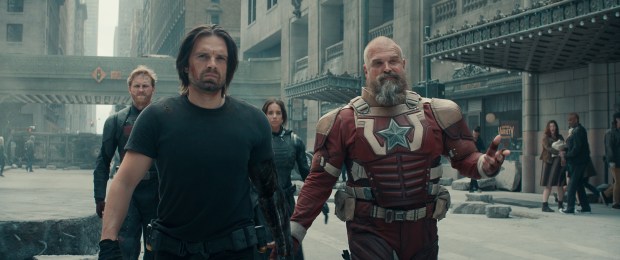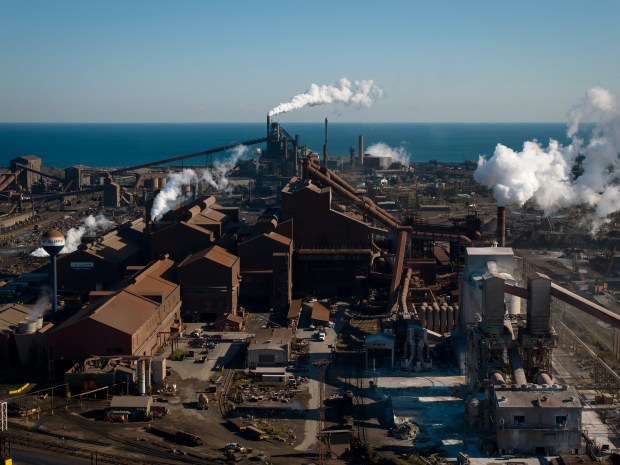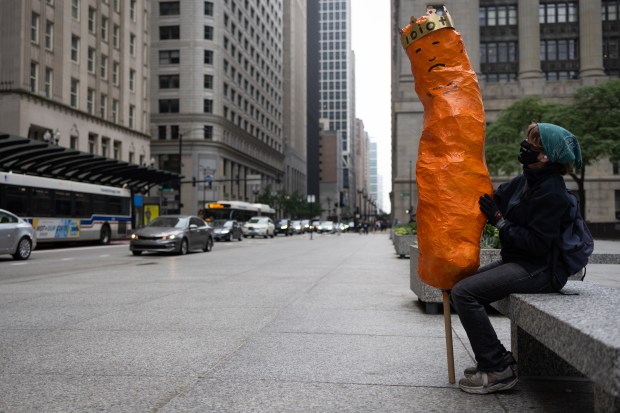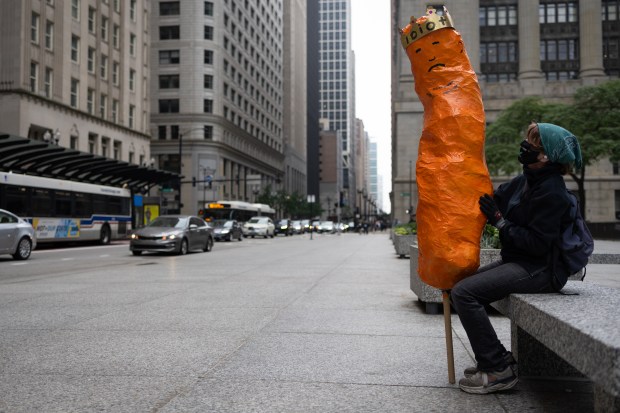Most comics-derived superhero movies really wouldn’t be much of anything without buried rage, and what happens when it won’t stay buried. Their stories’ relentless emphasis on childhood trauma and the crippling psychological load carried by broken souls (heroes and villains both) — that’s the whole show.
With its adorable little asterisk in the title, “Thunderbolts*” goes further than most Marvels in its focus on psychological torment, mental health and, more broadly, a shared search for self-worth among a half-dozen also-rans who learn what it takes to be an A-team. Their sense of shame isn’t played for laughs, though there are some. Mostly it’s sincere. And it’s more effective that way.
“A” stands for Avengers, among other things, and with the legendary Avengers AWOL for now (hence the asterisk in the title), there’s a vacuum in need of filling. Targeted for elimination, with Julia Louis-Dreyfus returning for duty as U.S. intelligence weasel Valentina, the combatants of the title have their work cut out for them. Who can they trust? If not Valentina, taking a more central role this time, then who?
Joining forces are Yelena/Black Widow (top-billed Florence Pugh); her gone-to-seed father Alexei/Red Guardian (David Harbour); the tetchy John Walker/Captain America (Wyatt Russell); Antonia/Taskmaster (Olga Kurylenko); the quicksilver invisible Ava/Ghost (Hannah John-Kamen); and the Winter Soldier himself, Bucky Barnes (Sebastian Stan), whose entry into the “Thunderbolts*” storyline is most welcome. Their mission: To neutralize as well as rehabilitate the all-too-human lab experiment known as Bob, aka The Sentry, aka The Void, played by Robert Pullman. He’s Valentina’s little project, more dangerous than anyone knows.
The misfits scenario guiding “Thunderbolts*” is nothing new. “Suicide Squad” did it, “Guardians of the Galaxy” does it, and this motley crew keeps the tradition alive. It works, even when the material’s routine, because Pugh’s forceful yet subtle characterization of a heavy-hearted killing machine with an awful childhood feels like something’s at stake. She and the reliably witty Harbour work well together, and while there’s a certain generic-ness at work in the character roster — these insecure egotists are meant to be placeholders, with something to prove to themselves and the world — the actors keep the movie reasonably engaging before the effects take over.
Even those are better than usual, for the record. That sounds weird when you’re dealing with another $200 million production budget commodity. Shouldn’t they all look good, preferably in wildly different ways?
It’s a matter of simplicity and selectivity, not assault tactics. The poor, tormented newbie Bob has a superhero guise (The Sentry, fearsomely powerful, essentially all Avengers packed into one fella). but SuperBob has a dark side. When The Void takes over, it’s insidious psychological warfare, with The Void’s victims suddenly, quieting disappearing into a massive black handprint. His targets must relive the worst guilt and shame they have known, whoever they are, wherever that shadow of anguish and rage may lead them.
Sounds heavy, and it is. But at its best, the visualization of this part of “Thunderbolts*” feels like something relatively new and vivid. And there you have it. The 36th MCU movie, if you’re interested. It’s the most pretty-good one in a while.
“Thunderbolts*” — 3 stars (out of 4)
MPA rating: PG-13 (for strong violence, language, thematic elements, and some suggestive and drug references)
Running time: 2:06
How to watch: Premieres in theaters May 1
Michael Phillips is a Tribune critic.





